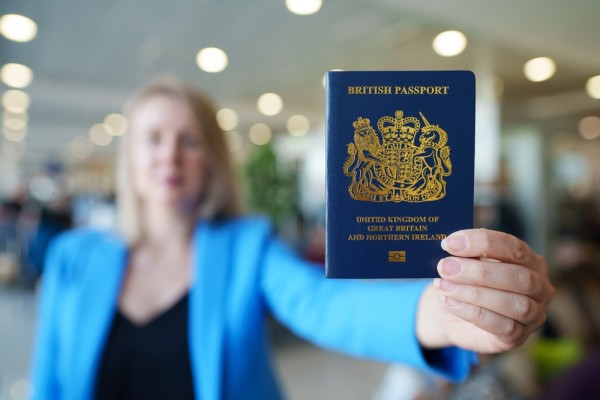UK government plans to use passport database to catch shoplifters
06/10/2023 | The Guardian
The UK government is planning to use the country's passport database to help catch criminals, according to the Minister of State for Crime, Policing and Fire, Chris Philp, who was speaking at a fringe event of the Conservative party conference on Monday. Philp intends to integrate data from the police national database (PND) with the Passport Office and other national databases, including the immigration and asylum system, CCTV, even dashcam and doorbell technology, in order to help the police find instant matches.
The move has been heavily criticised by civil liberty campaigners who warn the plans would be an "Orwellian nightmare" and a "gross violation of British privacy principles." However, Philp has said that the technology is now so good that even a blurred image can be matched to a criminal.
"Operationally, I'm asking them to do it now. In the medium term, by which I mean the next two years, we're going to try and create a new data platform so you can press one button [and it] lets you search it all in one go," Philp said. He recommends that police forces search each database separately until a new data platform is created. The measures are being proposed amid concerns about unprecedented levels of theft and shoplifting, which has more than doubled in the past six years.
Emmanuelle Andrews, policy and campaigns manager at Liberty, said, "Time and time again the government has relied on the social issue of the day to push through increasingly authoritarian measures. And that's just what we're seeing here with these extremely worrying proposals to encourage the police to scan our faces as we go to buy a pint of milk and trawl through our personal information... By enabling the police to use private dashcam footage, as well as the immigration and asylum system, and passport database, the government are turning our neighbours, loved ones, and public service officials into border guards and watchmen."
In a separate statement, Silkie Carlo, director of Big Brother Watch (BBW), said, "Philp's plan to subvert Brits' passport photos into a giant police database is Orwellian and a gross violation of British privacy principles. It means that over 45 million of us with passports who gave our images for travel purposes will, without any kind of consent or the ability to object, be part of secret police lineups... To scan the population's photos with highly inaccurate facial recognition technology and treat us like suspects is an outrageous assault on our privacy that totally overlooks the real reasons for shoplifting. Philp should concentrate on fixing broken policing rather than building an automated surveillance state... We will look at every possible avenue to challenge this Orwellian nightmare."
In an update on Friday morning, The Guardian reports that a coalition of 65 UK politicians are calling for an end to the use of live facial recognition surveillance by police and private companies. The campaign, initiated by the privacy advocate group BBW and backed by a coalition of 31 civil society organisations, including Liberty, Amnesty International and the Race Equality Foundation, has garnered support from cross-party MPs and peers, including former cabinet minister David Davis, Liberal Democrats leader Sir Ed Davey, Green MP Caroline Lucas, and former shadow attorney general Shami Chakrabarti.
The statement from the group read:
"We hold differing views about live facial recognition surveillance, ranging from serious concerns about its incompatibility with human rights, to the potential for discriminatory impact, the lack of safeguards, the lack of an evidence base, an unproven case of necessity or proportionality, the lack of a sufficient legal basis, the lack of parliamentary consideration, and the lack of a democratic mandate.
"We call on UK police and private companies to immediately stop using live facial recognition for public surveillance."
Further details are available in BBW's press release, including a statement from BBW director Silkie Carlo, who said, "This important call from MPs to urgently stop live facial recognition represents the greatest involvement parliamentarians have ever had in Britain's approach to facial recognition surveillance... As hosts of the AI summit in autumn, the UK should show leadership in adopting new technologies in a rights-respecting way, rather than a way that mirrors the dystopian surveillance practices of Saudi Arabia and China. There must be an urgent stop to live facial recognition, parliamentary scrutiny and a much wider democratic debate before we introduce such a privacy-altering technology to British life."

What is this page?
You are reading a summary article on the Privacy Newsfeed, a free resource for DPOs and other professionals with privacy or data protection responsibilities helping them stay informed of industry news all in one place. The information here is a brief snippet relating to a single piece of original content or several articles about a common topic or thread. The main contributor is listed in the top left-hand corner, just beneath the article title.
The Privacy Newsfeed monitors over 300 global publications, of which more than 3,250 summary articles have been posted to the online archive dating back to the beginning of 2020. A weekly roundup is available by email every Friday.

